Les membres du Cercle des survivants
À propos du Cercle des survivants
Les survivantes et les survivants des pensionnats autochtones ont donné aux peuples autochtones et non autochtones l’occasion d’entreprendre un cheminement menant vers le cadeau de la réconciliation. Ce sont les survivantes et les survivants des pensionnats autochtones qui ont réclamé que le gouvernement et les autorités ecclésiastiques soient tenus responsables et imputables de leurs actions. Les survivantes et les survivants ont aussi demandé la création de la Commission de vérité et réconciliation du Canada (CVR). Les survivantes et les survivants des pensionnats autochtones continuent d’être les pierres d’assises du travail fait au pays pour rétablir la vérité et favoriser la réconciliation.
Le Cercle des survivants compte sept membres et guide le Centre national pour la vérité et la réconciliation (CNVR). Les membres :
- S’assurent que la voix et les points de vue des survivantes et des survivants restent au cœur des programmes et des politiques du CNVR.
- Fournissent des orientations et des conseils au CNVR, au Cercle de gouvernance, à l’Université du Manitoba et aux partenaires sur tout aspect important pour la grande communauté des survivantes et des survivants.
En savoir plus sur le Cercle des survivants du CNVR
Terri Brown, survivante et présidente du premier Cercle des survivants du CNVR.
J’ai eu l’immense plaisir de faire partie du premier Cercle des survivants du CNVR. Il est important d’entendre la voix des survivantes et des survivants dans les processus de développement et de prise de décisions du Centre afin d’assurer l’inclusivité, l’équilibre et la vérité dans ce que reflète ce que nousléguonsaux futures générations.
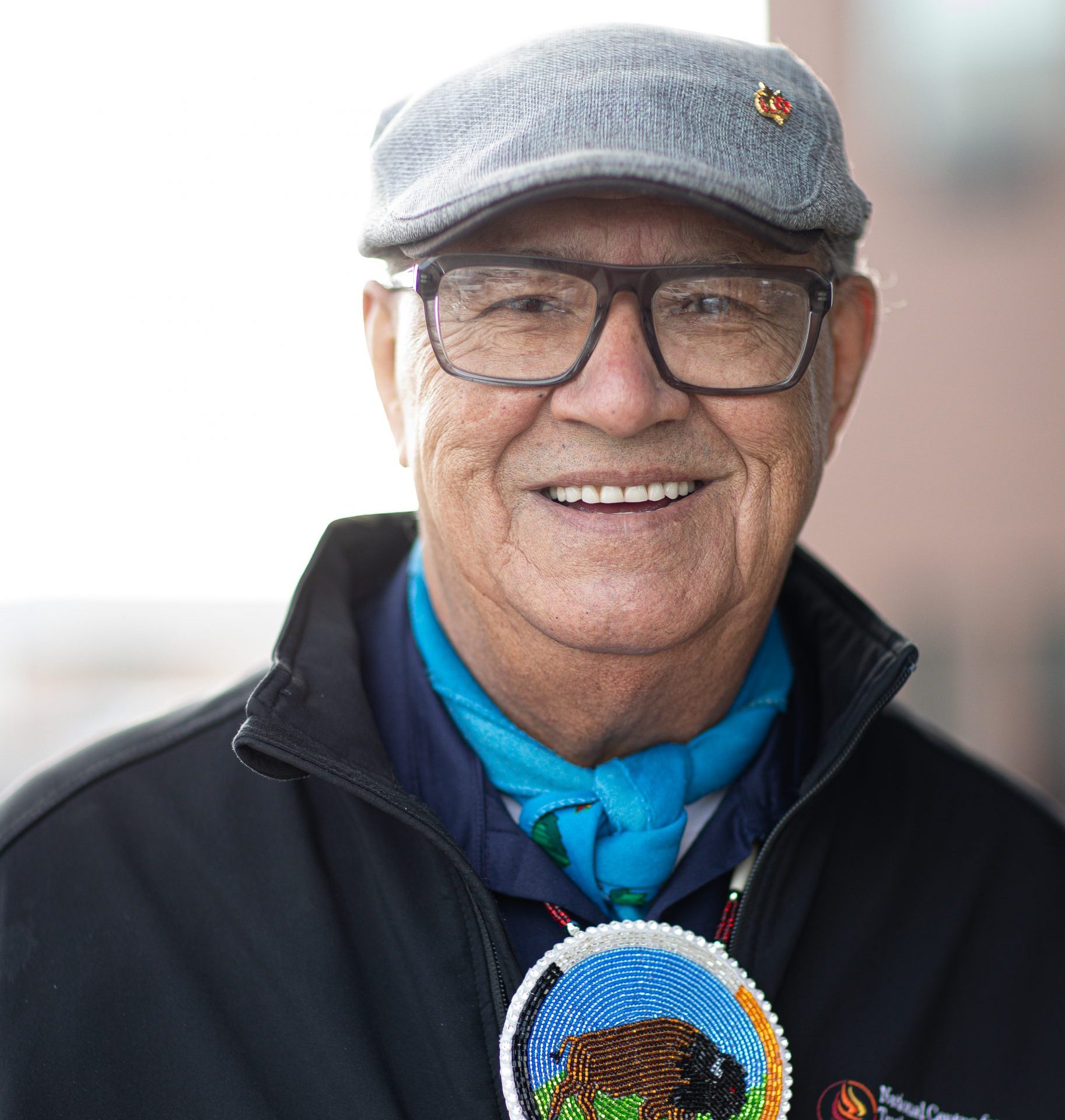
Eugene Arcand
Cri de la Première Nation de Muskeg Lake, Eugene Arcand a passé neuf ans au pensionnat autochtone St. Michael de Duck Lake et deux ans au pensionnat St. Paul’s de Lebret, tous deux situés en Saskatchewan. Intronisé au Temple de la renommée sportive des Premières Nations, M. Arcand a consacré une grande partie de son temps à l’organisation d’événements régionaux et nationaux, comme des événements sportifs des Premières Nations, des événements culturels, des événements touristiques et des événements destinés à l’avancement des jeunes des Premières Nations.
Au cours des dernières années, par l’entremise du Comité des survivants des pensionnats autochtones de la CVR et du Cercle de gouvernance du CNVR, Eugene Arcand a travaillé pour faire en sorte que la population et les communautés de survivantes et de survivants soient informées des développements et des processus liés à la Convention de règlement relative aux pensionnats autochtones. Eugene Arcand attribue son succès au soutien et à l’amour de sa famille et de sa femme, Lorna Arcand, à qui il est marié depuis 48 ans. Ensemble, ils ont trois enfants, sept petits-enfants et trois chapans.

Francis Dickie Yuzicapi
Francis est d’origine multiculturelle qui représente la majorité des cultures des plaines que l’on trouve encore aujourd’hui en Saskatchewan : Ojibway, Cri, Métis et Dakota. Dickie est différent car, avant de fréquenter le pensionnat, il a été élevé par ses arrière-grands-parents qui lui ont transmis les enseignements traditionnels. Dickie est un survivant, et un survivant de traumatismes sur plusieurs générations. Il est actuellement chef cuisinier à la Sioux Chef Catering Company, dont il est propriétaire, et il est égalent un conseiller en ce qui a trait à toutes les facettes de la culture autochtone. C’est un maître conteur et un orateur expérimenté qui sait se servir de son propre contexte ancestral et de ses liens historiques de manière à concrétiser les recommandations du programme « Vérité et réconciliation ». Ses ateliers sont animés avec une grande attention aux histoires de sa famille et au niveau de réconciliation de tous les participants. Il s’agit de créer une compréhension en prenant soin de jeter les bases de ce qui doit être fait pour guérir.
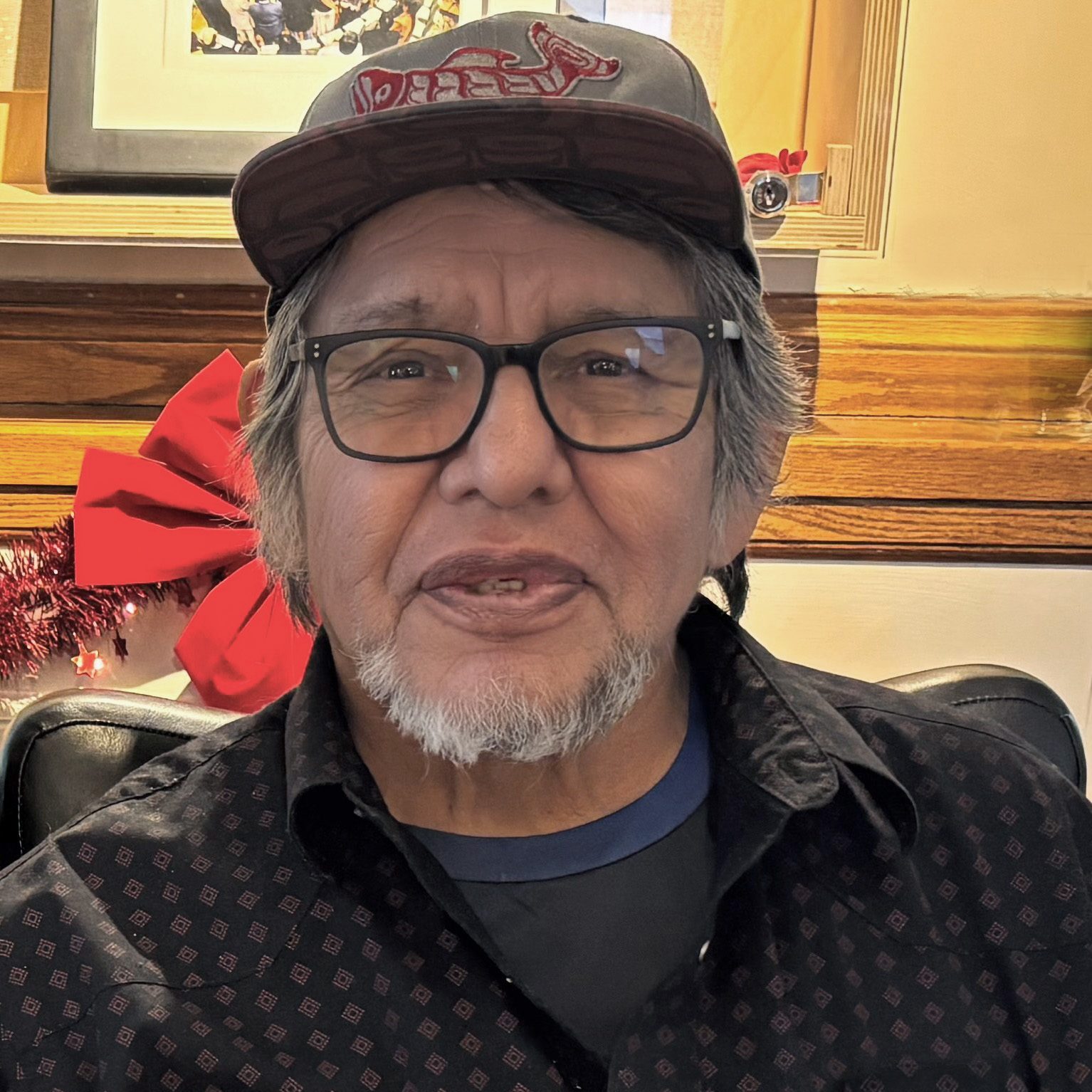
Dennis Saddleman
Dennis est de la Nation Nlaka’pamux du côté de sa mère et de la Nation Syilx du côté de son père. Il a fréquenté le pensionnat de Kamloops pendant 11 ans. Avant d’aller au pensionnat, Dennis faisait partie d’une grande famille. Aujourd’hui, tout le monde est décédé, y compris ses parents, ses grands-parents, ses frères et sœurs, et ses oncles et tantes. Il a connu de nombreuses difficultés, notamment des problèmes de drogue et d’alcool et de suicide. C’est avec détermination et persévérance que Dennis a poursuivi son cheminement vers la guérison. Il partage ses histoires et ses poèmes sur les pensionnats dans les écoles primaires et secondaires, les collèges et les universités. Ses poèmes sont puissants et ont été reconnus dans le monde entier. Ses plus grandes réalisations ont été ses 44 ans de sobriété et la publication d’un livre intitulé Word Warrior. Le nom des ancêtres de Dennis est E’Welsh, ce qui signifie grand-oncle. Parce qu’il est écrivain, sa famille et ses amis l’appellent Word Warrior (Guerrier des mots).
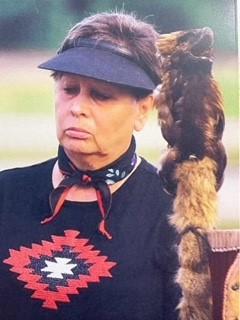
Barbara Cameron
Les noms spirituels de Barb Cameron sont « Neegaunibinessikwe », qui signifie « femme chef des oiseaux-tonnerres », et « Begonegeezhig », qui signifie « ouverture dans le ciel ». Barb appartient au Clan du Loup et est membre de quatrième degré du Midewiwin Shkabehikwe de Minweyweywigaan Midewiwin Lodge, à Roseau River, au Manitoba, où elle est participe activement à la réconciliation, à l’enseignement, à la préservation et au soutien des savoirs traditionnels et des pratiques liées aux enseignements cérémoniels Midewiwin.
Barb est membre de la Première Nation de Long Plain, une gardienne du savoir très respectée et une survivante des pensionnats de la troisième génération. Elle parle toujours couramment l’anishinabemowin malgré les difficultés rencontrées lors de son séjour au pensionnat de Brandon.
Barb a commencé à travailler comme interprète judiciaire dans le système judiciaire provincial du Manitoba sous la tutelle d’Angus Merrick. Plus tard dans sa carrière, elle a joué un rôle essentiel en tant qu’interprète et chargée de la collecte des témoignages pour les survivants des pensionnats lors des audiences nationales de la Commission de vérité et réconciliation. En plus d’être membre du Cercle des survivants, Barb est conseillère en situation de crise et thérapeute en santé mentale pour les communautés autochtones éloignées. Elle continue à travailler avec les communautés autochtones en tant que gardienne du savoir afin de rétablir les liens nécessaires avec les esprits et le mode de vie qui nous a été transmis par le Créateur.
« Je reconnais et j’assume la responsabilité de la manière dont, sans le vouloir, j’ai transmis mon propre traumatisme à mes enfants et petits-enfants, qui continuent d’en subir les conséquences aujourd’hui comme demain. J’espère que cela mettra fin à la destruction de nos familles. La première réconciliation doit commencer par moi-même. J’espère que cela vous donnera un aperçu de mon esprit. Miigwetch. »
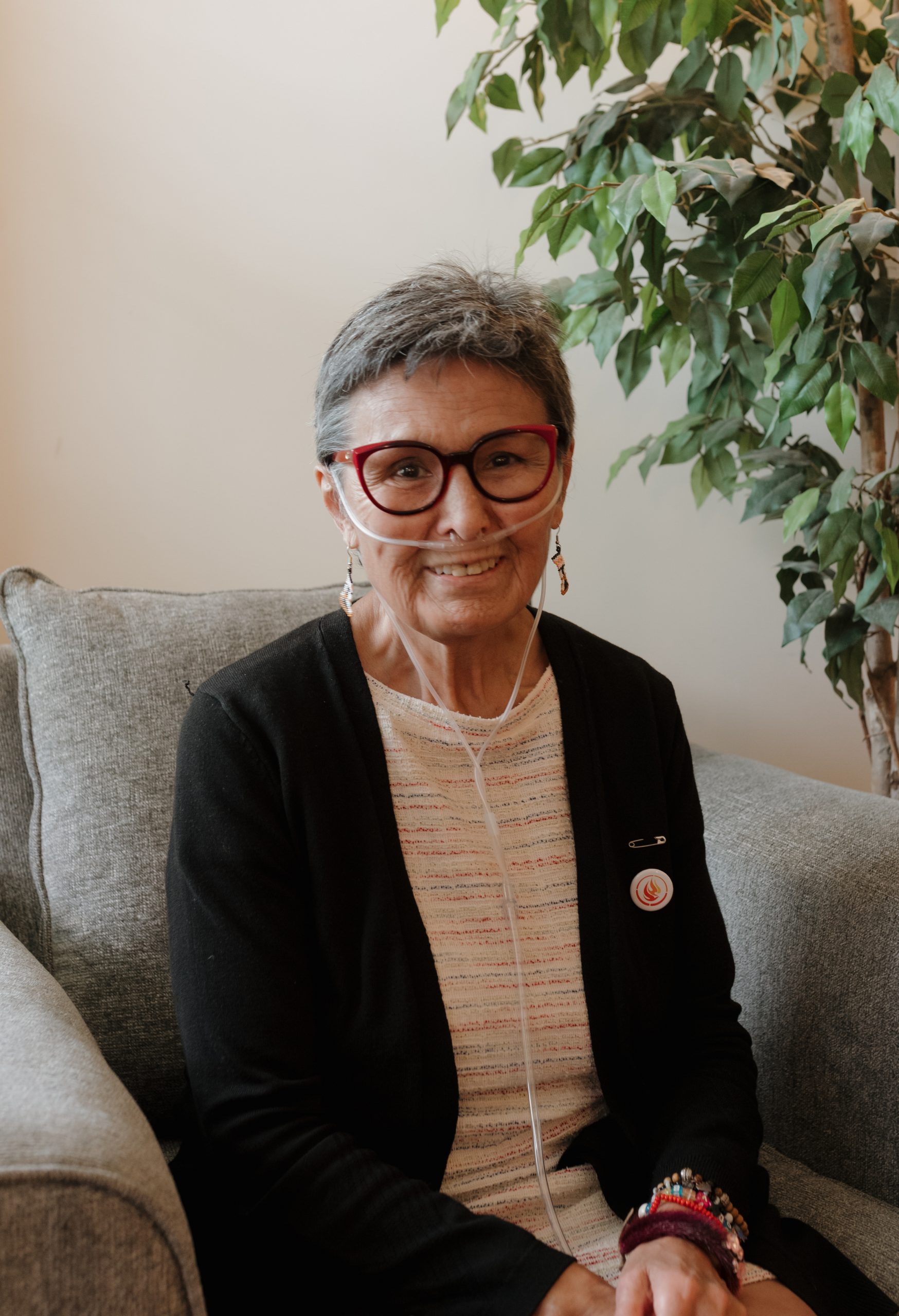
Edna Elias
Edna Elias était appelée par sa grand-mère « Haattuliarmiutaq », ce qui veut dire « habitante de la fine couche de glace », car elle est née près d’un lac de pêche en automne. Cela explique aussi pourquoi elle adore pêcher sur la glace, au printemps et à l’automne.
Enseignante de profession, Edna défend ardemment la langue et la culture inuites. Elle a vécu et respiré sa culture en milieu urbain, la mettant en valeur dès qu’elle le pouvait lors d’événements présentés à Edmonton. Elle partage ses connaissances culturelles à l’occasion de présentations dans des établissements d’enseignement et des écoles primaires de la ville. L’enseignement de l’inuinnaqtun, le dialecte des Inuits du cuivre de Kitikmeot de l’ouest du Nunavut, est une autre de ses passions. Elle offre de la formation à des adultes, des professeurs de langue, du personnel d’établissements préscolaires et de garderies, des éducateurs et des parents de jeunes enfants.
Après cinq ans comme commissaire du Nunavut, Edna est retournée dans sa communauté d’origine de Qurluqtuq, soit la communauté située à l’extrême ouest du Nunavut. Depuis son retour, elle a été très active dans sa communauté. Elle a mis sur pied une organisation serricole sans but lucratif, a ouvert les portes de sa maison aux femmes pour leur enseigner les méthodes traditionnelles de couture et de préparation de la fourrure et est l’une des membres Ayauqtiit (guide) dont le seul but consiste à offrir des conseils aux deux écoles. Elle a continué de faire du bénévolat dans ses loisirs. Plus récemment, elle et deux anciennes éducatrices ont lancé une entreprise pour promouvoir la préservation et la rétention de l’inuinnaqtun en donnant des cours de langue, en offrant des programmes et des services d’orientation, de conseils et de planification d’événements éducatifs et culturels, en produisant du matériel de lecture en inuinnaqtun et en soutenant les programmes de langue dans les écoles.
Tout cela s’est arrêté rapidement lorsque la maladie a freiné Edna et l’a forcée à déménager à Edmonton afin d’avoir un meilleur accès à des services et à des soins médicaux. « Je suis heureuse de dire que j’ai appris à vivre en fonction de mes nouvelles limites et que je NE laisse PAS la maladie contrôler ma vie », affirme Edna.
Vivant actuellement à Edmonton, Edna a été active dans différents cercles consultatifs autochtones en étant la voix des Inuits. Dernièrement, elle s’est jointe au conseil consultatif autochtone de l’Université Grant MacEwen, au conseil consultatif autochtone du Royal Alberta Museum, au Edmonton International Elders & Knowledge Keepers Circle pour le projet Indigenous Spaces, au conseil consultatif autochtone de la ville d’Edmonton et au conseil consultatif autochtone de pour le projet Towards Home (pour enrayer l’itinérance).
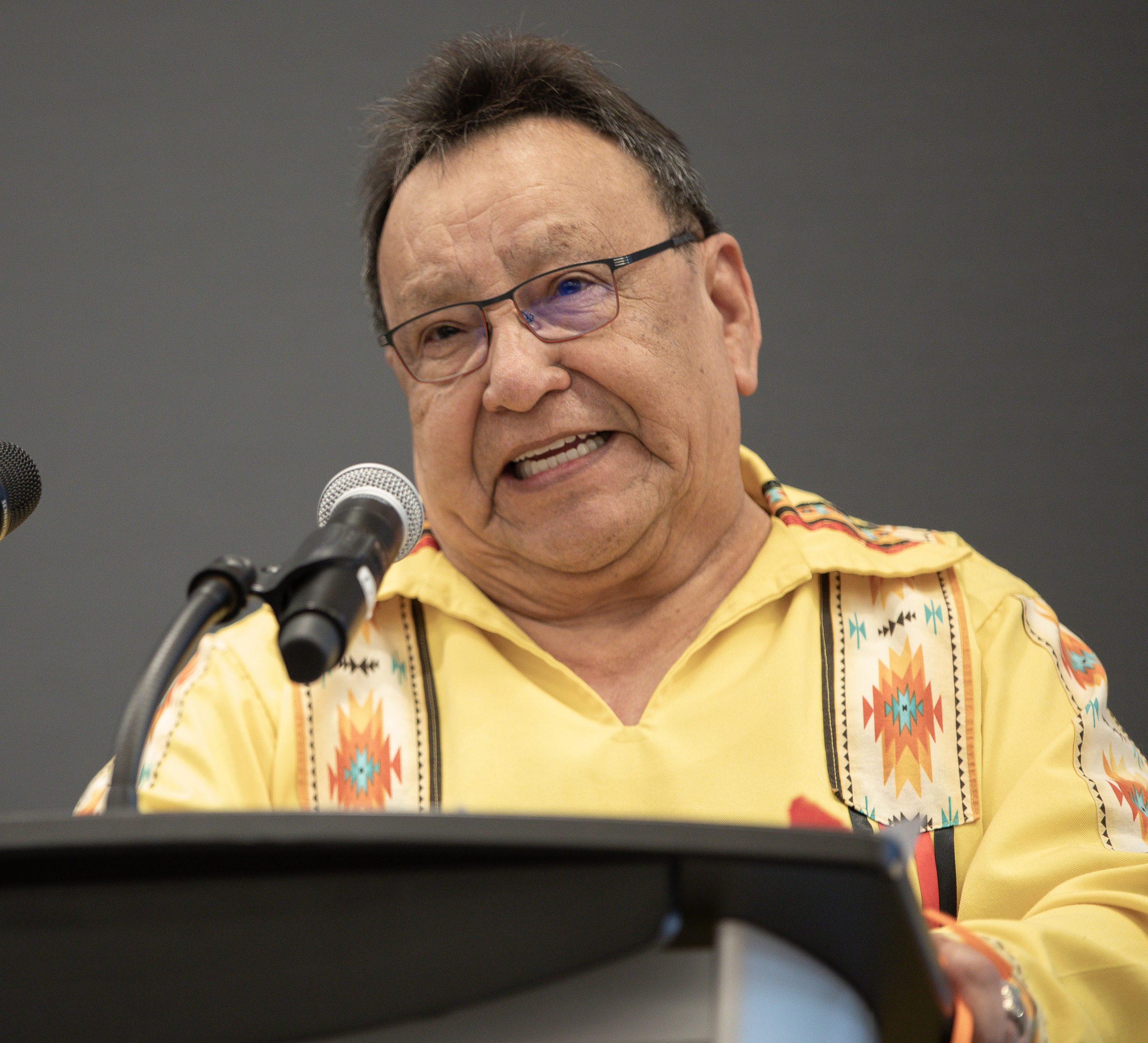
Laurie McDonald
Laurie McDonald, aussi appelé Marvin ou Wabamum, a été élevé par trois femmes fortes : sa grand-mère Marie Mary Thomas (Hope), sa mère biologique Veronica Thomas, et sa mère adoptive (soit la sœur de sa mère biologique) Antonette McDonald.
Laurie est entré au pensionnat Ermineskin en 1963 et y a survécu. Il a ensuite poursuivi des études universitaires et obtenu un baccalauréat en éducation, se spécialisant dans l’enseignement aux enfants ayant des problèmes de développement (éducation spécialisée). Il a enseigné pendant 27 ans dans diverses écoles partout au Canada.
En 2001, Laurie est passé au domaine de la protection de l’enfance en tant qu’enquêteur et travailleur social chargé de la protection de l’enfance pour le ministère des services à la famille et à l’enfance, qui est devenu par la suite le Vancouver Aboriginal Children and Families Services. Il a passé dix ans au service de cette agence avec la ferme intention de prendre sa retraite par la suite, mais le Créateur avait d’autres projets pour lui. Il a alors travaillé pour Indigenous Perspective et le ministère de l’enfance et de la famille à Victoria, en Colombie-Britannique, en tant qu’instructeur pour les travailleurs sociaux dans les agences mandatées.
Laurie a pris sa retraite en mars 2019 et est rentré chez lui. Bien qu’il ait été au sommet de sa discipline, Laurie a estimé que le temps était venu pour lui de prendre sa retraite et il n’a aucun regret. Il est inspiré par son peuple à Enoch et s’émerveille de sa résilience, et il continuera à faire valoir et à utiliser ses talents partout où cela sera nécessaire.
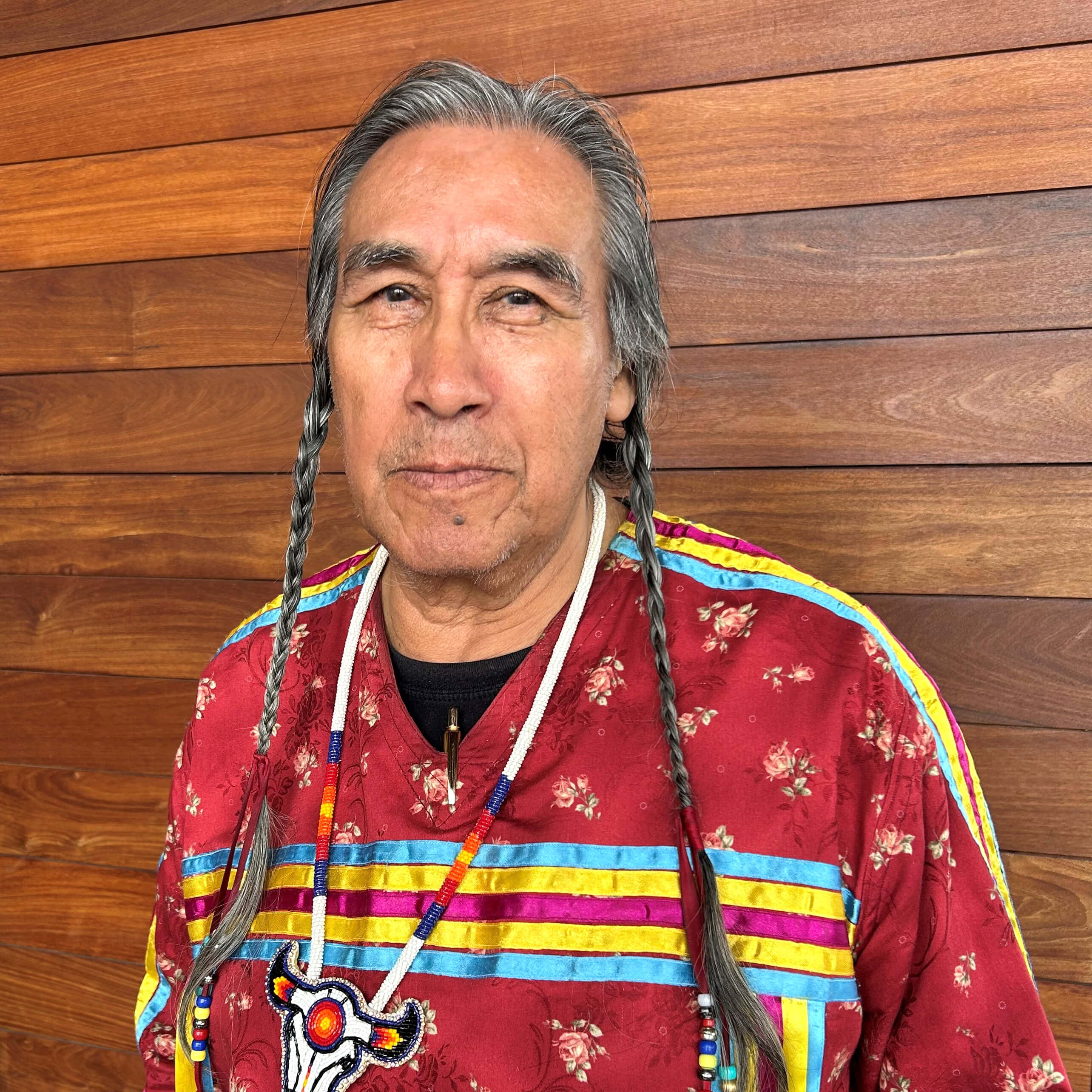
Antoine Mountain, Ph. D.
J’étais l’un des enfants que mes grands-parents ne voulaient pas laisser partir. Nous vivions dans les montagnes, dans le Grand Nord, et j’ai été envoyé dans le premier de trois pensionnats autochtones à l’âge de neuf ans. Nous avons été transportés en bateau depuis ma maison à Radelie Koe, à Fort Good Hope, dans les Territoires du Nord-Ouest, jusqu’à Aklavik, nous arrêtant en cours de route pour faire monter d’autres enfants.
Le deuxième pensionnat où j’ai été envoyé était le fameux Grollier Hall à Inuvik, où de nombreuses atrocités commises contre des enfants autochtones ont été documentées. J’ai passé au total 12 ans dans des pensionnats, et c’est à Fort Smith que j’ai fait mes études secondaires.
Si j’ai choisi de faire partie du Cercle des survivants du Centre national pour la vérité et la réconciliation, c’est parce que je me soucie de la jeunesse d’aujourd’hui. Bon nombre des problèmes graves auxquels sont confrontés les jeunes sont dus au traumatisme intergénérationnel causé par les pensionnats. Ils savent que nos communautés ont de graves problèmes sociaux, mais on ne leur a pas nécessairement expliqué pourquoi. Je veux contribuer à les sensibiliser à ce sujet.
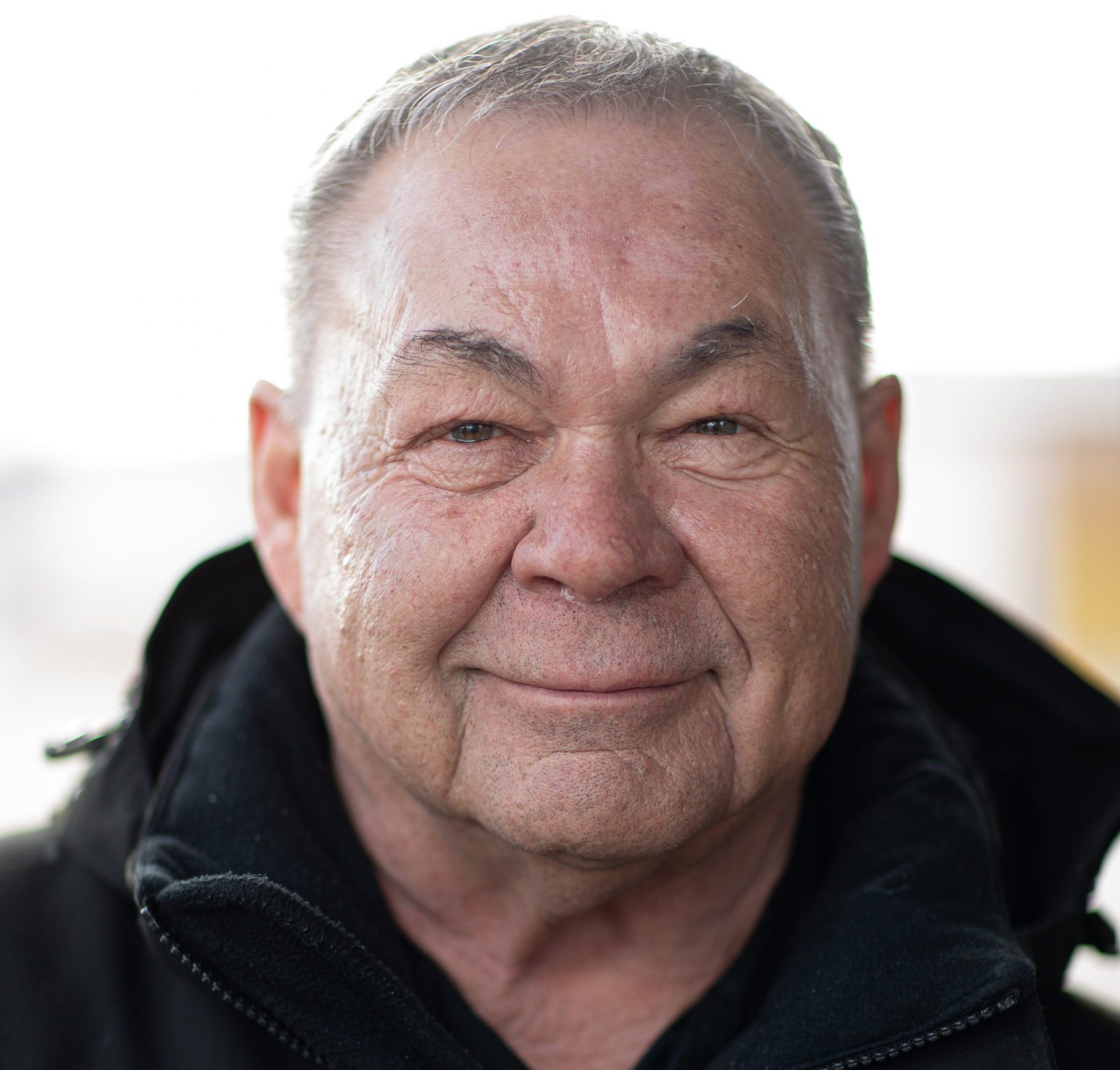
Brian Normand
Brian Normand est un descendant métis et michif de la colonie de la rivière Rouge et un survivant du système des pensionnats. Marié à Claudette, une fière Métisse, depuis 45 ans, ils ont ensemble trois fières filles métisses et un fils qui est passé dans le monde des esprits. Il a également sept petits-enfants qui le tiennent très occupé.
Depuis plus de 20 ans, il travaille en tant qu’aidant spirituel et Aîné au sein du système judiciaire (le Centre Agassiz pour la jeunesse, le Centre de traitement de Marymound, l’Établissement de Stony Mountain, la Régie des services à l’enfant et à la famille des Métis, l’organisme Native Clans et le Native Women’s Transition Center) en fournissant des soins et des thérapies culturellement adaptés aux enfants, aux jeunes et aux familles métis, des Premières Nations et des Inuit. Il était auparavant membre du conseil d’administration de la Régie des services à l’enfant et à la famille des Métis et du Indian and Metis Friendship Center.
Dans le cadre de son travail auprès de ces organismes, il a élaboré, mis en œuvre et fourni une formation obligatoire sur la sensibilisation aux questions autochtones, et y a participé, en plus d’élaborer un programme culturel complet pour les personnes au sein du système judiciaire et du système de protection de l’enfance du Manitoba. Il a représenté le peuple métis lors de l’enquête sur la justice autochtone.
Il a également été l’un des 71 dirigeants sélectionnés dans le monde pour participer à un pèlerinage à Ange, en France, pour leur leadership collaboratif visant à promouvoir la culture, l’héritage et la spiritualité des Métis.
De plus, sous la tutelle de Gladys Cook, grand-mère et Aînée de renommée nationale, il s’est exercé à la pratique de l’ensemble des cérémonies autochtones, y compris les cercles de guérison et de partage et les cérémonies de la longue maison.
Au fil du temps, il a établi des partenariats solides avec des organismes autochtones et non autochtones afin d’améliorer la situation de notre peuple. Il a également été mis en nomination pour le prix d’excellence du Manitoba en 2002.
Brian Normand a relevé de nombreux défis au cours de sa vie, qu’il s’agisse d’être un survivant des pensionnats ou de la perte récente de son épouse, sans pour autant perdre son esprit et sa joie de vivre. Brian continue d’aller de l’avant et est un modèle pour les autres.
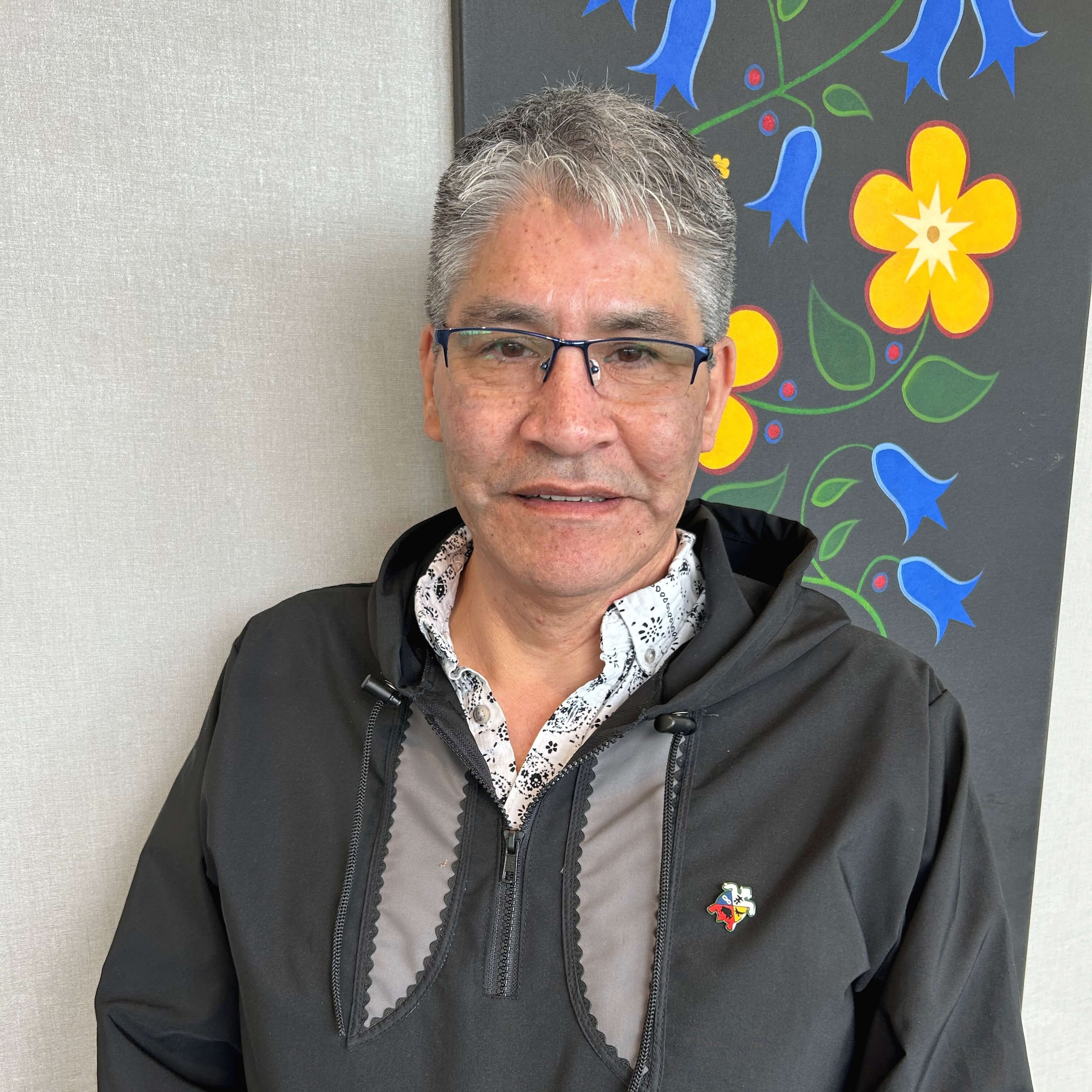
Jerome Gordon
Originaire d’Aklavik, dans les Territoires du Nord-Ouest, Jerome vit aujourd’hui à Inuvik. Il a grandi avec ses grands-parents, Danny A et Annie B Gordon. Ses arrière-grands-parents, Alex et Hope Gordon, ainsi que le révérend Jim Sittichinli et son épouse, Julia Sittichinli, ont également participé à son éducation. Jerome a passé une partie de son enfance sur les terres, pendant la saison très animée de la chasse au rat musqué dans le delta du Mackenzie. Il a ensuite fréquenté le pensionnat Grollier Hall à Inuvik, où il a terminé ses études secondaires.
Au fil des ans, Jerome a occupé plusieurs postes de direction dans sa communauté et sa région, notamment celui de conseiller municipal et d’adjoint au maire d’Aklavik pendant plusieurs mandats. Il aime représenter sa communauté et les habitants du delta du Mackenzie et défendre leurs intérêts.
Jerome a œuvré comme travailleur de la santé communautaire (résolution), offrant un soutien vital aux personnes de sa région tout au long du processus des pensionnats autochtones. Il est actuellement responsable de la santé mentale et du bien-être à la Inuvik Community Corporation et continue d’aider les résidents d’Inuvik et du delta du Mackenzie à mener une vie saine grâce à des programmes adaptés.
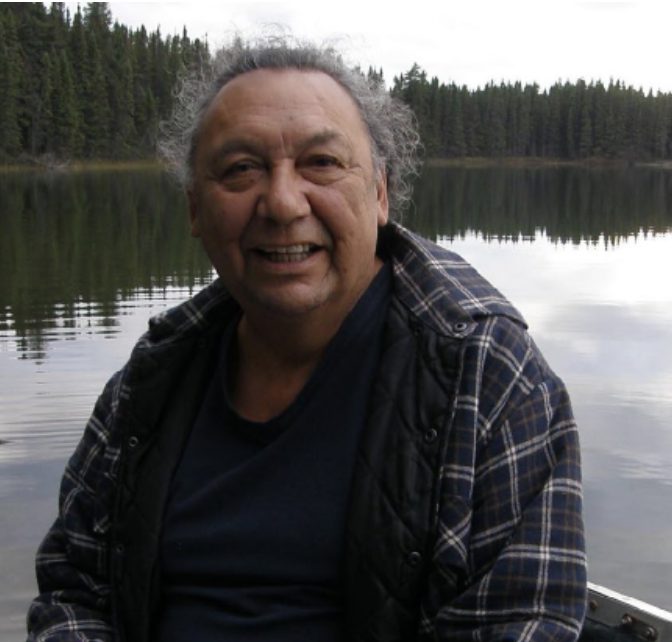
Richard ‘Ejinagosi’ Kistabish
Richard Kistabish est un Anicinabe (Algonquin) de la Première Nation Abitibiwinni, au Québec, Canada. Richard est né Ejinagosi, un nom qui le prédestinait à avoir de l’impact, puisqu’il signifie « celui qui raconte ». Il ne pouvait donc se taire devant le génocide culturel des premiers peuples du Canada.
Il parle couramment le français et l’anglais, de même que sa langue traditionnelle, l’anicinabemowin. Il a grandi en forêt, sur les berges de la rivière Harricana, où il a été élevé dans sa langue, apprenant à pratiquer la culture de ses ancêtres, jusqu’à l’âge de six ans. Il a alors été envoyé au pensionnat de Saint-Marc-de-Figuery, près d’Amos, où il a vécu jusqu’à l’âge de 16 ans.
Ayant vécu dix années difficiles au pensionnat de Saint-Marc, l’éducation des enfants anishinabek dans leur langue, entourés de leur culture et de leur famille, est rapidement devenue un enjeu important pour Richard. Pendant qu’il était chef des Abitibiwinnik, il a travaillé à amener l’école dans la communauté pour que les enfants n’aient plus besoin de quitter leur famille pour aller étudier à Amos.
Depuis des décennies, Ejinagosi prête sa voix à une nation que l’on surnomme encore « le peuple invisible ». Son dévouement a apporté une visibilité nouvelle aux Anicinabek par la mise en place de projets innovants sur le territoire. Compter un Anicinabe au sein d’un groupe de travail mondial serait une fierté pour l’ensemble de la nation et la preuve que les années de silence et d’invisibilité appartiennent au passé. Richard est un symbole anishinabe de résilience, comme plusieurs personnes de sa nation, mais il est aussi une figure politique forte et un homme d’action.
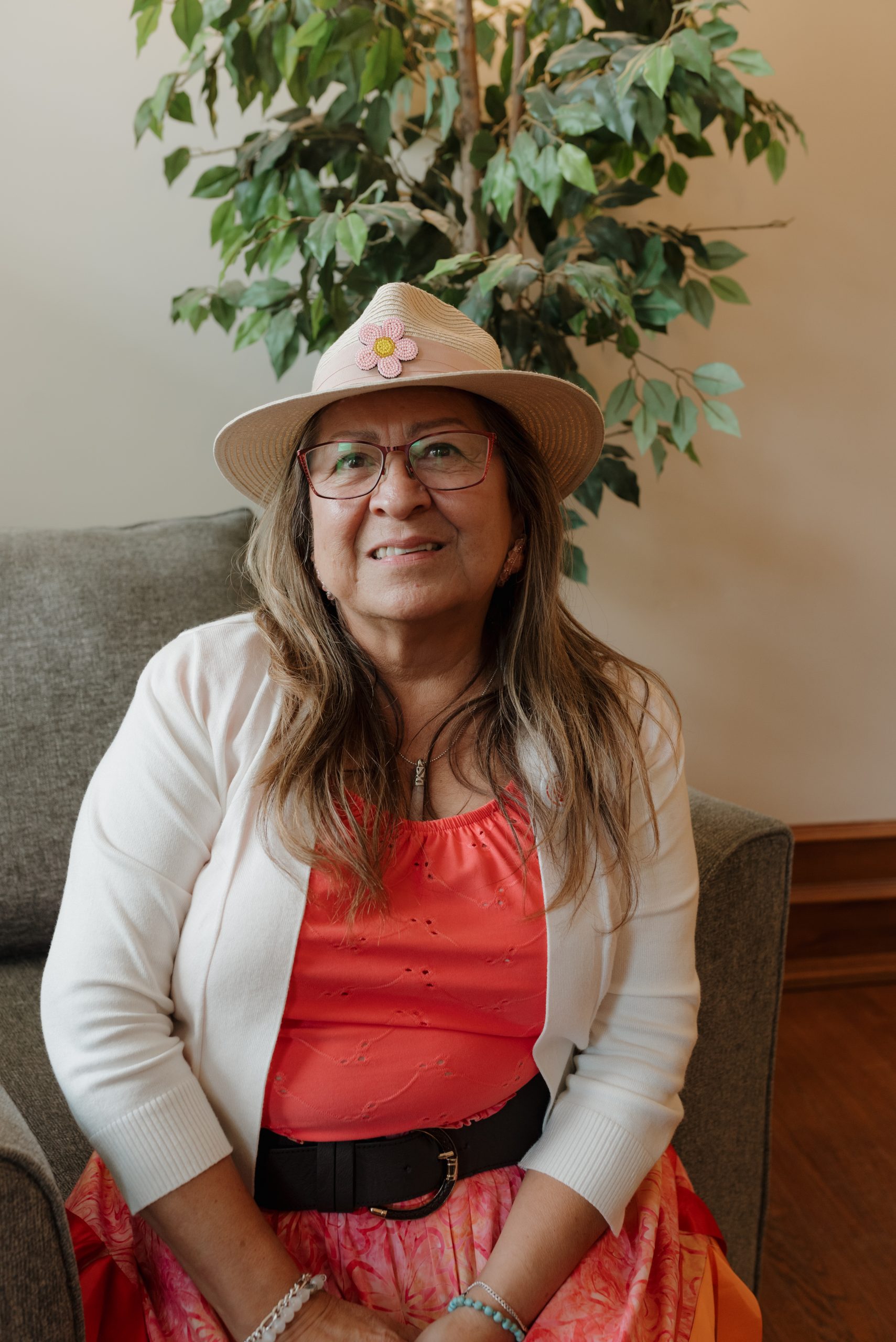
Dorene Bernard
Dorene Bernard, Kesatum tan teli L’nuwey, du clan Kiwnik, Sipekne’katik, Mi’kmaki, est une Micmac traditionnelle de la bande Sipekne’katik qui vit à Indian Brook, en Nouvelle-Écosse. Elle a quatre enfants et neuf magnifiques petits-enfants. Elle est une survivante du pensionnat de Shubenacadie, faisant partie de la 3e génération de sa famille à y être placée. Dorene a obtenu un baccalauréat en service social de l’Université Dalhousie en 1991 et une maîtrise en service social de l’Université Wilfrid-Laurier en 2013 dans le domaine des études autochtones. Récemment, elle a coordonné le projet IRS Legacy du Mi’kmawey Debert Cultural Centre. Elle y travaille avec des survivants et des familles de la région de l’Atlantique en vue de documenter l’histoire de l’héritage des pensionnats autochtones et de dresser les profils des survivants qui seront conservés dans les archives. Elle poursuit toujours ce travail.

Abraham Bearskin
Abraham Bearskin, Miywaabinwaaskum « Celui qui donne une nouvelle vie », a été mis au monde de manière traditionnelle par quatre sages-femmes (grand-mères) dans un Mitchuap à Fort George. Ses parents, Daniel et Mary Bearskin, l’ont élevé sur leurs terres, lui apprenant les enseignements cris et le mode de vie traditionnel jusqu’à l’âge de 8 ans, âge auquel il a été placé dans un pensionnat.
Pendant neuf ans, il a fréquenté trois pensionnats distincts : St. Philip’s, Bishop Horden Hall et le pensionnat de La Tuque. Dans ces institutions, il a survécu à des abus qui ont continué à le perturber jusqu’à l’âge adulte. À l’âge de 17 ans, il est retourné chez lui pour réapprendre le mode de vie traditionnel. Plus tard, il a terminé ses études secondaires et obtenu un baccalauréat à l’Université McGill.
Abraham a occupé diverses fonctions au sein du Conseil cri de la santé et des services sociaux de la baie James, et a été directeur du Service Niishiyuu, responsable des services et des pratiques de guérison traditionnels cris.
Abraham est actuellement bien engagé dans son cheminement de guérison et a passé des décennies à renouer avec le mode de vie traditionnel dans lequel il a été élevé lorsqu’il était enfant, avant de fréquenter les pensionnats. Il se consacre avec passion et dévouement à aider les autres à surmonter leurs traumatismes. En tant que guérisseur traditionnel, il travaille avec les méthodes de guérison traditionnelles Eeyou (Cris de la baie James), notamment les sueries, le jeûne et la danse du soleil. Il anime des ateliers, prend la parole lors de conférences et s’investit énormément dans la guérison par la terre, y mettant tout son cœur.
Le nom spirituel du CNVR, Bezhig miigwan, signifie « une plume ».
Bezhig miigwan nous invite à considérer chaque survivant qui se présente au CNVR comme une plume d’aigle, et à lui montrer le même respect et la même attention que s’il était une plume d’aigle. Ce nom signifie également que nous sommes tous ensemble – nous sommes unis et connectés, et il est vital de travailler ensemble pour parvenir à la réconciliation.
